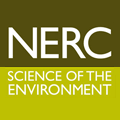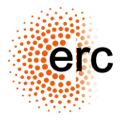
Slide 1 Heading
Lorem ipsum dolor sit amet consectetur adipiscing elit dolor
Click Here
Slide 2 Heading
Lorem ipsum dolor sit amet consectetur adipiscing elit dolor
Click Here
Slide 3 Heading
Lorem ipsum dolor sit amet consectetur adipiscing elit dolor
Click Here
Previous
Next
About the lab
Twitter feed
We study the biology of our inner ecosystems – the diverse and dynamic communities of symbiotic organisms that colonise animals. How do they get there? What are they doing? And how do they affect host health and fitness?
Tweets by Sarah Knowles
We study the biology of our inner ecosystems
Historically, the study of infection has taken a reductionist approach, by unpicking how a single infectious agent (symbiont) interacts with its host. Yet in nature, no symbiont interacts with a host in isolation. Today, it is increasingly clear that a community perspective is crucial to understanding both host-symbiont and host-pathogen interactions. Co-infecting symbionts interact with each other in myriad ways, and these interactions are important – they alter infection outcomes, health impacts, symbiont transmission and evolution. Moreover, community-level traits like diversity and stability are critical in host-symbiont biology but would be missed by a purely reductionist approach.
Embracing this perspective, we use a community ecology approach to study host-symbiont and host-pathogen biology. We are interested in what shapes symbiotic communities, how symbionts interact with each another, and what impact they have on the host.
A key current focus is on the mammalian gut microbiome – the dense community of microbes residing in the gastrointestinal tract. The microbiome constitutes an exciting new frontier in biology, and our understanding of how these complex communities affect host biology is rapidly advancing. While the human microbiome has received intense focus in recent years, the microbiome of wild animals remains largely unexplored. As such, many open questions remain about the ecology and evolution of these important communities across the tree of life. We tackle this gap in knowledge by studying gut microbiome ecology in wild animals, using a combination of field studies, experiments, computational and comparative approaches.



